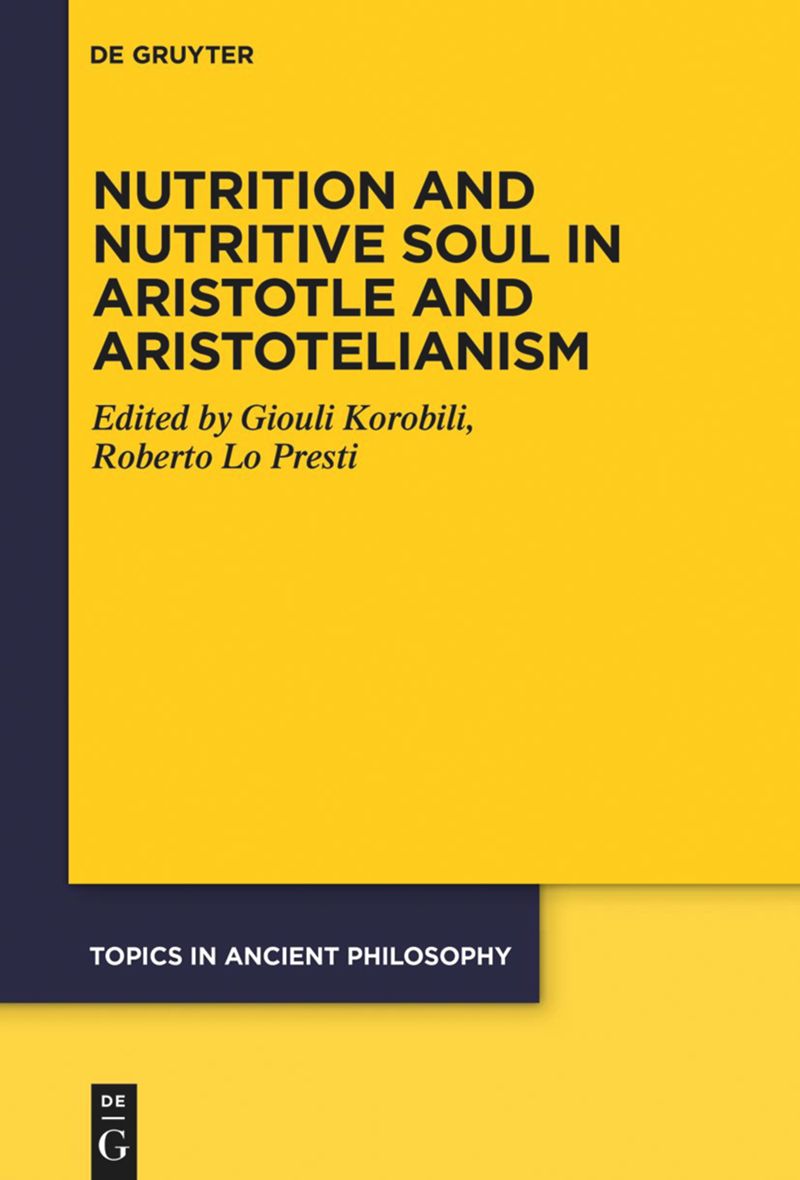
David Lefebvre sets out to show that while embryogenesis is indeed the work of the nutritive soul in the sense that this soul is the cause of growth, Aristotle did not attribute to the nutritive soul any specific power to form the embryo. The chapter examines this question through a detailed reading of On the Soul II, 4; On the Generation of Animals II, 1, 4 and 6. The two functions of the soul distinguished in the chapter of On the Soul (reproduction and nutrition) are sufficient to explain the formation of the embryo through its various stages: the generation of the heart from the heat of the sperm; the separation of the parts of the embryo under the effect of the pneuma; the growth of these parts in the uterus under the effect of the internal principle residing in the heart, and the growth of the living being once it is born. David Lefebvre examines Aristotle's analogies between the artisan and the nutritive soul, which seem to suggest that the latter has a specific power to form the embryo through these processes. We must conclude, however, that Aristotle conceived of embryogenesis as a continuous process of communication of the movements of the nutritive soul of the father to that of the embryo, through the mediation of the sperm and the heart of the embryo.
A. M.
David Lefebvre entreprend de démontrer que si l’embryogenèse est bien l’œuvre de l’âme nutritive au sens où cette âme est cause de la croissance, Aristote n’a en revanche pas attribué à l’âme nutritive un pouvoir spécifique de formation de l’embryon. Le chapitre examine cette question en procédant à une lecture détaillée de De l’âme II, 4 ; De la génération des animaux II, 1, 4 et 6. Les deux fonctions de l’âme distinguées dans le chapitre du traité De l’âme (reproduction et nutrition) suffisent à expliquer la formation de l’embryon à travers ses différentes étapes : la génération du cœur à partir de la chaleur propre du sperme ; la séparation des parties de l’embryon sous l’effet du pneuma ; la croissance de ces parties dans l’utérus sous l’effet du principe interne résidant dans le cœur, puis la croissance de l’être vivant une fois né. David Lefebvre examine les analogies employées par Aristote entre l’artisan et l’âme nutritive, qui semblent suggérer que celle-ci aurait un pouvoir spécifique de formation de l’embryon à travers ces processus. Il faut pourtant conclure qu’Aristote a conçu l’embryogenèse comme un processus continu de communication des mouvements de l’âme nutritive du père à celle de l’embryon, par la médiation du sperme et du cœur de l’embryon.
A. M.